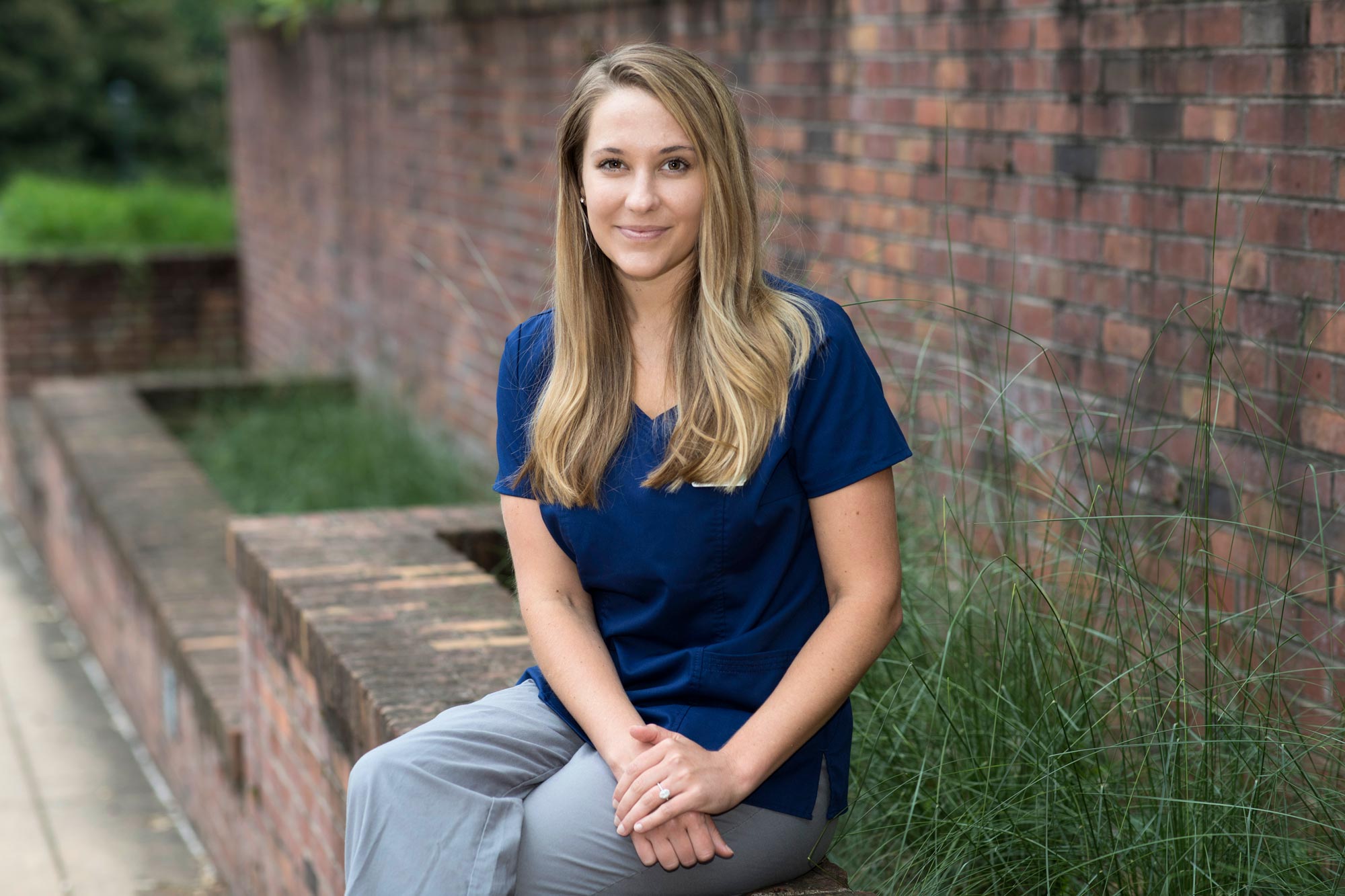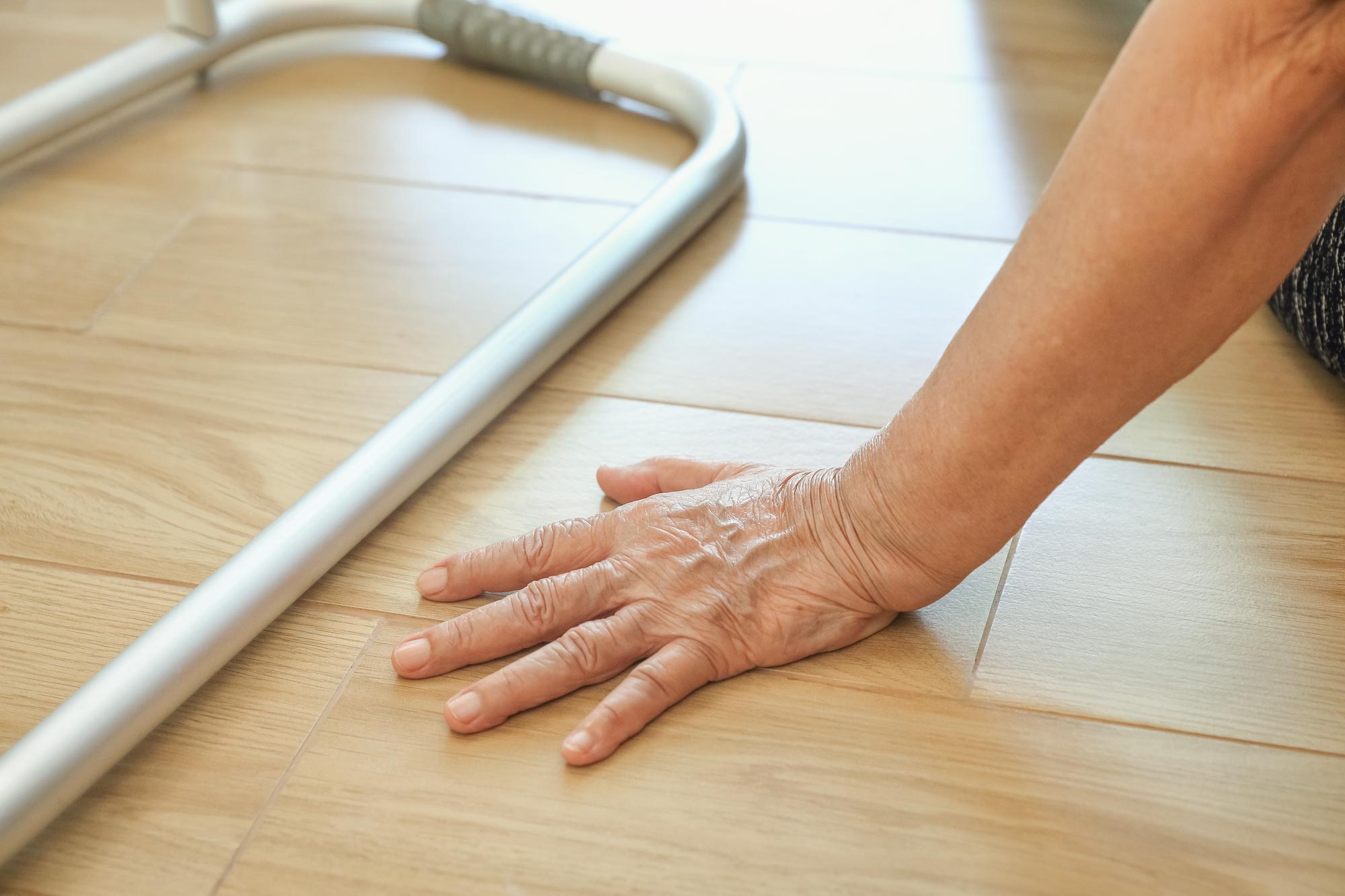The No. 1 cause of traumatic injury and death in the state of Virginia might surprise you.
It’s falling down.
With September being National Falling Awareness Month, UVA Today reached out to University of Virginia Health System injury prevention coordinator Liz Cochran – whose job focuses on preventing falls, particularly among the elderly – for advice on how people of all ages can avoid what are oftentimes life-changing events.
The good news, according to Cochran, is that many falls are largely preventable.
“By making small changes in your environment, behaviors and personal health, you can reduce your fall risk tremendously,” she said.
Safety Begins at Home
Cochran said you want to ensure that pathways throughout your home are wide and easy to navigate.
“Floor spaces should be clear of cords, throw rugs and ground-level objects, as these all quickly become tripping hazards,” she said. “Tape cords against the wall and remove ground-level objects such as baskets, shoes, books and other items from walkways.”
In your kitchen, keep things that you use often on the lower shelves so you don’t need a stepstool or ladder to reach them.
Cochran said having well-lit areas are also important in reducing fall risk.
“Replace dim bulbs with brighter ones, and make sure you have easy-to-reach lamps near your bed in case you need to get up in the night,” she said. “Put automatic or motion-sensing nightlights in your bathroom and on your path from your bed to the bathroom.
“In the bathroom, use grab bars inside your shower and next to the toilet. Contact the Jefferson Area Board for Aging, or JABA, if you need to be connected to local resources that can install them. Non-slip rubber mats inside the shower or tub bottom can also be very beneficial to preventing a fall.”

UVA Health System injury prevention coordinator Liz Cochran says many falls are largely avoidable. (Photo by Dan Addison, University Communications)
Don’t Resist Assists
From walking sticks to walkers, there are many types of assisted walking devices out there to choose from.
“Many people ask, ‘How do I know when it’s time to get something and what is best to get?’” Cochran said. “The simplest way to answer that is if you find yourself unsteady on your feet, or reaching to hold onto walls or pieces of furniture to steady yourself, then it’s probably a good time to explore assistive devices.
“It’s best to work with a physical or occupational therapist to choose the device that is best for you, and to be properly fitted for it.”
Keep Moving
Cochran said certain forms of exercise, like tai chi, are extremely effective in reducing a person’s fall risk, their rate of falls and their fear of falling.
“Strengthening your leg muscles through exercise can help improve gait as well,” she said. “There are many classes for older adults that are designed to improve your balance and make your legs stronger.
“Enhance Fitness, through the YMCA, is the most recent evidence-based exercise class to be offered in our area; research has shown that participants of this class can lower their annual health care costs by almost $1,000.
“If you have a fear of exercising, as you feel like you may fall during it, discuss that with your doctor and they can provide recommendations to more carefully monitored programs.”
Monitor Your Meds
At least once a year, have your pharmacist review all medications and supplements that you take.
“As we get older, the way that medications impact us can change, and certain medication combinations can make you feel dizzy or sleepy, thus causing a fall,” Cochran said. “It’s important to note that if your medications are in the process of changing, be aware that it could impact your fall risk, so extra caution is advised during that transition time.
“Individuals on blood-thinning medications should especially be aware that if they experience a fall where they hit their head or are unsure of what happened due to loss of consciousness, it’s of utmost importance for them to seek medical attention, as they’re at an increased risk for internal bleeding in that situation.”
“Data from the CDC shows us that dogs, in particular, pose a risk for the elderly.”
- Liz Cochran
Check Your Eyes and Feet
Have your eyes checked by an eye doctor at least once a year, and be sure to update your eyeglasses if needed.
“If you have bifocal or progressive lenses, you may want to get a pair of glasses with only your distance prescription for outdoor activities, such as walking,” Cochran said. “Sometimes multifocal lenses can make things seem closer or farther away than they really are.
“Also, have your health care provider check your feet once a year. Discuss proper footwear, and ask whether seeing a podiatrist, a foot specialist, is advised. As we age, we tend to lose sensation in our feet and sometimes a podiatrist can give special recommendations to help with that.”
Speak Up
Cochran said you should talk to your doctor right away if you’ve fallen, feel unsteady on your feet or have a fear of falling.
“Your doctor can evaluate your risk for falling and work with you to address a number of different options for fall prevention so that maximum independence can be maintained and a fall can hopefully be avoided,” she said. “Ask your doctor if taking vitamin D supplements for improved bone, muscle and nerve health is right for you.
“For even more specialized advice and insight into your health as you age, a geriatrician is a primary care physician who has advanced training in the health issues of adults 65 and older, and can often provide further insight into complex age-related health issues.”
Preventing Falls With Pets
While pets are often as beloved as family members, Cochran said they also can pose a fall hazard.
“Data from the [Centers for Disease Control] shows us that dogs, in particular, pose a risk for the elderly, as they sometimes push or pull a person, causing them to fall,” Cochran said. “Reduce this fall risk by being aware of the increased hazard that pets pose, and by moving slowly and carefully around them – especially if your pet has certain tendencies, like being underfoot in the kitchen or running around when they hear certain words or phrases.
“It’s also important to take your dog to obedience class if they have jumping, pushing and/or pulling habits and are around individuals age 65 or older.”
Consider Technology
Cochran said the Apple 4-series watch is something people can consider using for a medical-alert device, thanks to its built-in fall-detection system.
“Regardless of the kind you have, though, medical alert devices are extremely important for those who are at risk for a fall (people 65 and over), since quickly receiving medical care is crucial for someone who has suffered a severe fall,” she said.
Media Contact
Article Information
September 20, 2019
/content/8-precautions-anyone-can-take-avoid-nasty-fall

